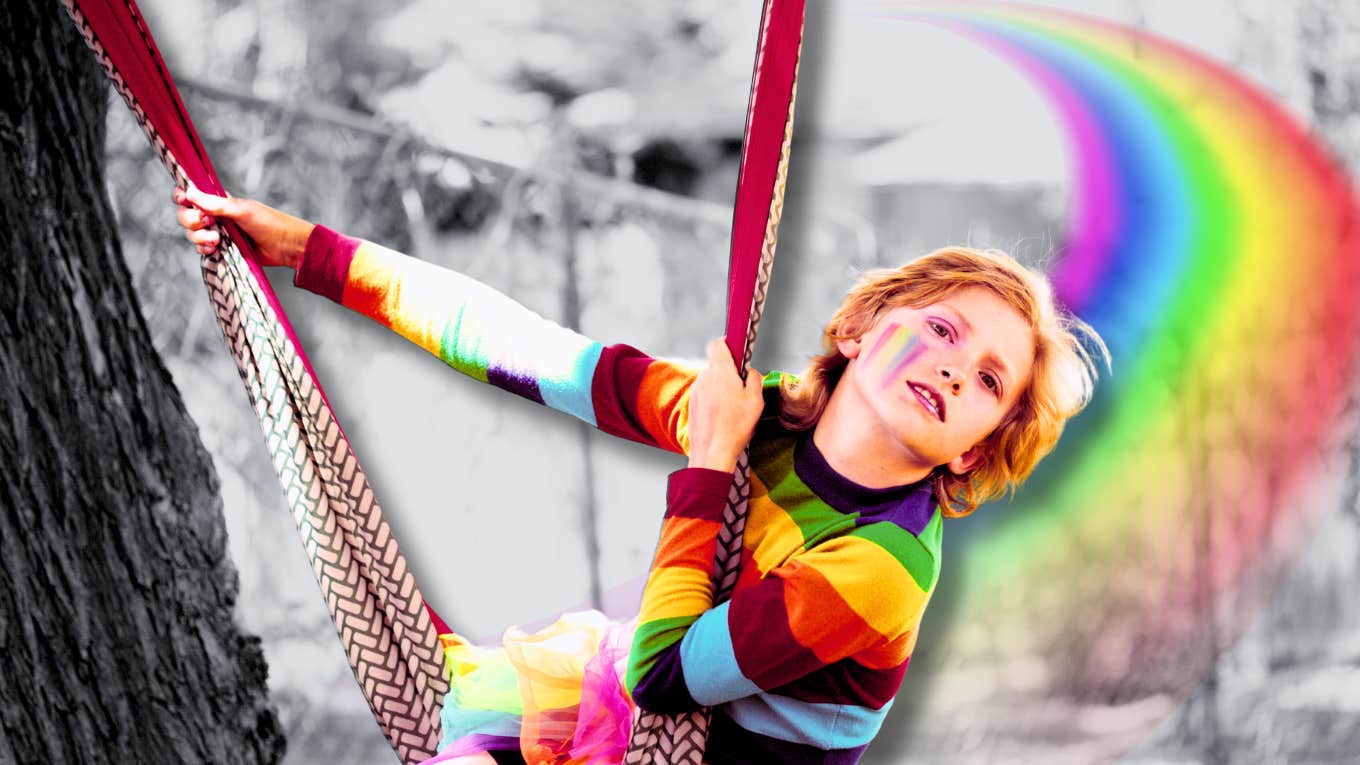10 Things The Healthiest Parents Do When Their Kids Come Out As LGBTQ
A funny thing happens when a child comes out of the closet. Their parents often walk right into it.
 Alexander Grey | Unsplash
Alexander Grey | Unsplash "Mom, Dad, I'm gay." Rarely are these words met with fanfare and rainbow flags flying, except in the rare instance when your parents already knew and were waiting for you to admit it.
The common reactions are fear, disappointment, confusion, and outright anger. But the worst is when a parent's first thought is, "How am I going to save my face once people find out Sally is a lesbian?"
Seriously? Were Mom and Dad the only ones who didn't notice?
A funny thing happens when a child comes out of the closet. Their parents often walk right into it. The roles are reversed, and the parents cry with the door closed. We'd like to throw them a life preserver, so they can see how to learn a few tricks about coming out.
Here's advice for parents who learn their kid is coming out.
1. You're not alone, and you're not the last.
Sorry to sound so flippant, but it's true. We used to think the same thing until we discovered other LGBTQI+ people are everywhere. Logic then says if we're everywhere, then parents with LGBTQI+ kids are everywhere, too, and there are quite a few of them ready to support you. You have to ask.
2. It's perfectly OK to be upset and gnashing your teeth.
Like you, we spent much time being upset because we weren't like all our friends. Of course, once we discovered being unique is cool, we felt better. Try considering how having an LGBTQI+ child makes you more unique and see how that feels.
3. You didn't screw up.
You aren't responsible for anything and have no reason to feel guilty. You didn't rewire our DNA in the womb. There was another master plan at work, and it changed your plan.
4. It's OK to stick to your values and beliefs.
Hey, if we didn't stick to our values and beliefs about who we are, we'd still be in the closet. The good news is you can stick to your values and beliefs, but you might have to sacrifice your relationship. On a positive note, if we accept that we have differences and can move on, then it can make our relationship work.
5. No billboard is necessary.
Ironically, not every LGBTQI+ person feels like shouting from the rooftops, "I'm gay." Honestly, we learn to share as we see fit, and you might as well do the same as you feel comfortable. There's no reason to go in search of the perfect time to share that your child is LGBTQI+. Like us, you come out at the same time every other parent does. When you're ready.
6. The readiness factor.
Without going all scientific and quantum physics on you, your readiness to share your story with others stems from your beliefs, perceptions, and desire to be open about your LGBTQI+ kid. You, like us, have a whole lifetime of formulating opinions about sexuality that are now in play. We learned to get real with our beliefs and perceptions. When you are true to yourself, you will have less stress than if you aren't.
7. What others think is not about you, it's about them.
Not to be crass, but anyone who can't handle the truth about your LGBTQI+ child doesn't matter unless you make them matter. One of the hardest human lessons to learn is we can't be responsible for other people's journeys. If you can't fully accept your LGBTQI+ child, do what you can. If your child can't deal with the truth, then that's their issue to work through. Of course, the lesson took me over a decade to learn after I came out.
8. Being out isn't an absolute.
Not every LGBTQI+ person is out at work, church, to friends and family, and the same holds for Moms and Dads as they come to terms with their child's sexuality. No rule says you're either 100% out about your child or 100% in. It just doesn't work that way. Do what you feel comfortable with.
9. Don't isolate.
Don't be ashamed to ask for help and support. PFLAG and HRC are great resources. Besides, how long can you hole up in the darkness of despair before you realize it's miserable and no fun?
10. Ask questions.
I know. Asking questions can be scary, but not any scarier than not having the answers. It's all about communication and dialogue. If we don't want to answer, we won't. Just know sometimes the answers might not be what you want to hear. Of course, we know how that works. We put up with that from you, too. The more we both ask questions and talk, the sooner we can get to a place of peace.

Photo via Getty
Any life change can be fraught with challenges and make you feel vulnerable. The important thing is to know yourself well enough to be in touch with how you feel about those challenges and make a decision authentic to you. If you can't find it in your heart to wrap your arms around your LGBTQI+ child and accept them, then that's the best you can do. If you can, then squeeze them tight and remember that, in the end, they are still your baby.
Rick Clemons is a certified professional coach, speaker, author, and podcaster who inspires corporations, entrepreneurs, college and university students, and individuals to make their bold moves. His semi-autobiographical book, Frankly My Dear, I'm Gay is now available.

